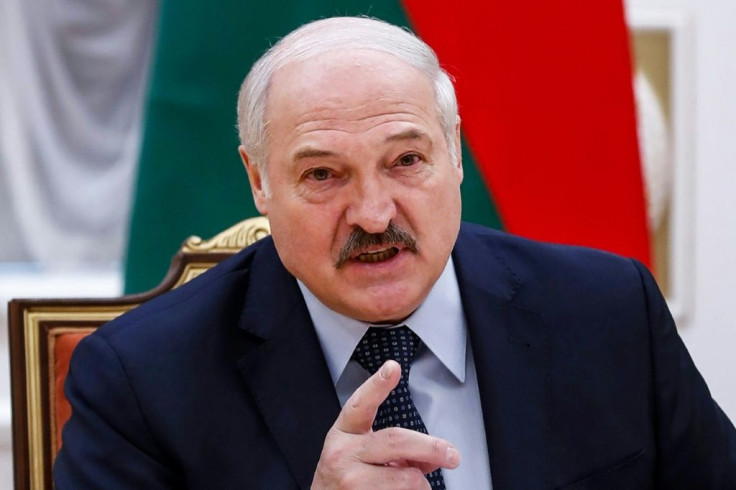Lukashenko Claims Western-linked 'Terrorist Sleeper Cells' Exposed In Belarus
Belarus strongman Alexander Lukashenko on Friday claimed authorities had exposed "terrorist sleeper cells" that he alleged were linked to Germany, the United States, Ukraine and other countries.
The latest volley of eyebrow-raising claims came after the West targeted key sectors of the struggling Belarusian economy with sanctions to punish the Lukashenko regime for a crackdown on dissenters and intercepting a Ryanair plane in May.
"Today terrorist 'sleeper' cells have been exposed, so-called self-defence units," Lukashenko announced at a ceremony marking 30 years of independence in post-Soviet Belarus.
"The goal of these cells is forcible regime change on day X. They themselves so far do not know when this day X comes: it is necessary to lead our people to it," Lukashenko said in remarks released by his office.
He alleged that Germany, the US, Ukraine, Poland and Lithuania were involved in their work.
"Today we completed a large-scale anti-terror operation," Lukashenko said, adding that Belarusian authorities would confront German Chancellor Angela Merkel.
Lukashenko also claimed the "sleeper" cells tried to target a Russian naval communication centre near the Belarusian town of Vileyka located around 100 kilometres (60 miles) northwest of the capital Minsk and he discussed the incident with President Vladimir Putin.
"We've discussed this problem in the most serious manner," the Belarus leader said.
"You understand the result of this discussion. All participants of the terror act -- including those who organised and carried it out -- were found and arrested within two days."
Franak Viacorka, a senior advisor to Belarus opposition leader Svetlana Tikhanovskaya, suggested that Lukashenko's latest outburst did not bode well for foreigners and he might be "looking for a pretext to crackdown on diplomats".
"Insane," he tweeted.

The 66-year-old leader also said he ordered officials to seal the country's border with pro-Western Ukraine to prevent "a huge amount of arms" coming into Belarus.
He also alleged that unidentified assailants sought to kill a state television personality, Grigory Azarenok, charging that "last night" they wanted to kidnap him and "cut off his tongue."
Since an election last August, Belarus has been in the grip of a political crisis that erupted after Lukashenko secured a sixth term as president.
The opposition says the election was rigged but authorities imposed an intense crackdown in which several people died and thousands were arrested.
Lukashenko, who has been in power since 1994, sparked international outrage by dispatching a fighter jet in May to intercept a Ryanair plane flying from Greece to Lithuania.
When the plane was forced to land in Minsk, Belarus arrested dissident journalist Roman Protasevich and his girlfriend on board.
In June, the West imposed sanctions on key sectors of the Belarus economy, ratcheting up pressure on the regime.
In response to the latest round of Western sanctions, Minsk said it was suspending its participation in the Eastern Partnership, an initiative to boost ties between the EU and its ex-Soviet neighbours.
Since the outbreak of the crisis, Lukashenko and state TV have made a number of fanciful statements directed at the Belarusian opposition and even ally Russia.
Lukashenko made headlines when he claimed last year that his security forces had intercepted German calls showing that Putin foe Alexei Navalny's poisoning with a Soviet-era Novichok nerve agent had been faked.
Belarusian television broadcast the "intercept" in which a Mike in Warsaw and Nick in Berlin discuss Navalny's materials and call Lukashenko a "tough nut to crack".
Lukashenko also raised eyebrows at the peak of demonstrations last year when he brandished an assault rifle and had his teenage son Nikolai appear next to him in a bulletproof vest while also wielding a weapon.
He accused modern Germany of Nazism on the 80th anniversary of Hitler's invasion of the USSR last month.
© Copyright AFP 2024. All rights reserved.





















